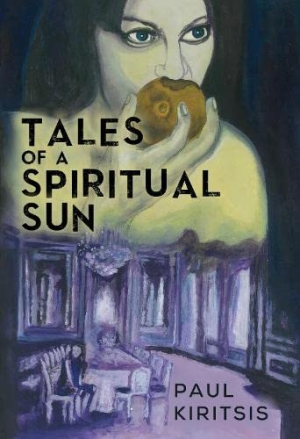Tales of a Spiritual Sun
Greek myths are revitalized via the modern additions of psychology and science in the involving short story collection Tales of a Spiritual Sun.
In Paul Kiritsis’s short story collection Tales of a Spiritual Sun, contemporary people interpret Greek mythology through the lenses of modern science and psychology.
In a nod to the teachings of Sigmund Freud, the book’s characters have sexual and scientific experiences while diving into the mysticism of ancient Greece. Some stories lean into the myths more than others, as with “Eros and Psyche,” wherein Psyche is swept into Eros’s realm to keep her safe from Aphrodite’s and her sisters’ jealousy. Others find their magic into the modern world: “Nymphomania” starts in a private investigator’s office, where a man claims that his wife is a nymph whom he has locked in Pandora’s box.
The stories are connected by the ways in which they trouble the dichotomy between science and myth, considering the values of fact versus faith in people’s lives. Sticking with the habits of Greek mythology, many of them are graphic. In “The Gorgon,” a sex scene reaches a violent end; the story illustrates the forgotten nature of gorgons in general and the violence of Medusa’s story. Such elements illuminate the characters’ fears well, adding horrific elements to these knowledgeable tales. There are, however, a few distracting switches in stories’ points of view.
Contextual paragraphs introduce each tale, reconciling these retellings with their originals. These are of particular help in tales that lean into their contemporary elements, as with “Phantasia,” in which a biology researcher takes his work home to detrimental effect; therein, the story’s connection to a minor sea god, the future-predicting Proteus, is subtle. And elsewhere, the effects of the original stories are heightened by the influence of disciplines including biology and psychology. Indeed, the stories recognize that nothing is ever quite as it seems, either in myth or in reality.
With direct mentions of Sigmund Freud and Carl Jung, these stories ably address psychic fears, too. This is evident as friends play with a Ouija board, as people talk to a sphinx, and when people wake and realize they are not dreaming. Several characters question their realities, whether they are sane, and if they should trust others. The line between fact and fiction is blurred in intriguing ways, including with a question of how Aphrodite and Odysseus might fare in the present.
Greek myths are revitalized via the modern additions of psychology and science in the involving short story collection Tales of a Spiritual Sun.
Reviewed by
Addissyn House
Disclosure: This article is not an endorsement, but a review. The publisher of this book provided free copies of the book and paid a small fee to have their book reviewed by a professional reviewer. Foreword Reviews and Clarion Reviews make no guarantee that the publisher will receive a positive review. Foreword Magazine, Inc. is disclosing this in accordance with the Federal Trade Commission’s 16 CFR, Part 255.

